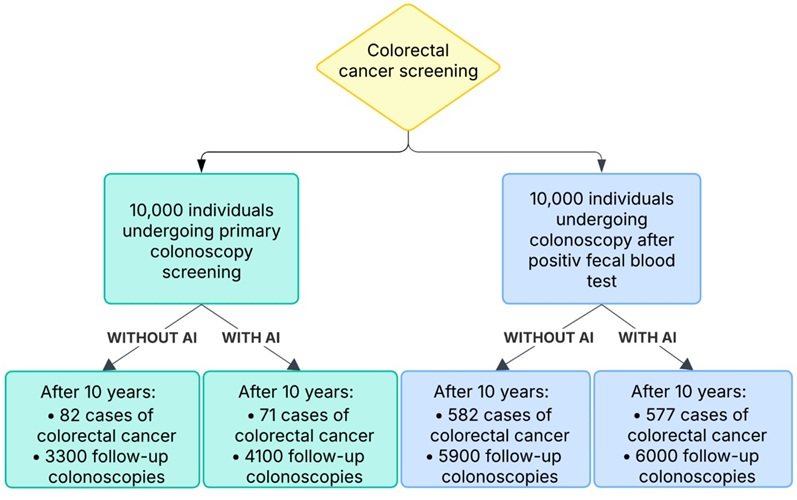Non-Steroidal Anti-Androgen Drug Demonstrates 92% Reduction in Mortality in Hospitalized COVID-19 Patients
|
By HospiMedica International staff writers Posted on 12 Mar 2021 |

Illustration
A non-steroidal anti-androgen drug has demonstrated a 92% reduction in mortality in hospitalized COVID-19 patients in an investigator-initiated trial.
Kintor Pharmaceuticals (Jiangsu, China) announced top-line results from its investigator-initiated trial evaluating the efficacy of Proxalutamide relative to standard of care as assessed by the COVID-19 ordinal scale. Proxalutamide is a non-steroidal anti-androgen - specifically, a selective high-affinity silent antagonist of the androgen receptor - which is under development for the potential treatment of COVID-19, prostate cancer, and breast cancer.
The investigator-initiated trial is a placebo-controlled, double-blinded randomized parallel assignment and multi-center study. The trial has two cohorts (men and women) and two arms (Proxalutamide and control). It enrolled 588 patients who met the eligibility criteria within 48 hours of admission to hospital. In the Proxalutamide arm, patients were orally administered Proxalutamide 300mg once daily (QD) for 14 days. In the control arm, patients were orally administered placebo once daily (QD) for 14 days. Each arm also received standard of care as determined by the principal investigator at the site. The primary endpoint of the trial is the treatment efficacy of Proxalutamide relative to control, as assessed by the WHO COVID-19 ordinal scale on day 14.
The preliminary analysis conducted on March 9, 2021 was based on 294 patients (56.8% male) in the Proxalutamide arm and 296 patients (57.8% male) in the control arm. According to the results on day 14, the mortality in Proxalutamide arm was 11(3.7%), compared to 141 (47.6%) in control arm, demonstrating a reduced mortality risk of 92%. The number of new mechanical ventilation (MV) and/or death in Proxalutamide arm was 13 (4.4%), compared to 156 (52.7%) in control arm, reducing mortality risk by 92%; and median hospital length stay (days) in Proxalutamide arm was 5, while it was 14 in control arm, which means Proxalutamide shortened hospital stay by 9 days.
"We are delighted to see that Proxalutamide could significantly reduce the mortality rate, shorten the length of hospital stay, reduce the number of new mechanical ventilations (MV), and increase the percentage of discharge from hospital, thus alleviating shortages of public health resources in Amazonas," said Dr. Tong Youzhi, Founder, Chairman and Chief Executive Officer of Kintor Pharmaceutical. "Based on the positive results of this phase 3 trial, the treatment of COVID-19 outpatients, hospitalized patients (including those admitted to Intensive Care Units), we expect Proxalutamide could become an important tool in the global fight against COVID-19."
Related Links:
Kintor Pharmaceuticals
Kintor Pharmaceuticals (Jiangsu, China) announced top-line results from its investigator-initiated trial evaluating the efficacy of Proxalutamide relative to standard of care as assessed by the COVID-19 ordinal scale. Proxalutamide is a non-steroidal anti-androgen - specifically, a selective high-affinity silent antagonist of the androgen receptor - which is under development for the potential treatment of COVID-19, prostate cancer, and breast cancer.
The investigator-initiated trial is a placebo-controlled, double-blinded randomized parallel assignment and multi-center study. The trial has two cohorts (men and women) and two arms (Proxalutamide and control). It enrolled 588 patients who met the eligibility criteria within 48 hours of admission to hospital. In the Proxalutamide arm, patients were orally administered Proxalutamide 300mg once daily (QD) for 14 days. In the control arm, patients were orally administered placebo once daily (QD) for 14 days. Each arm also received standard of care as determined by the principal investigator at the site. The primary endpoint of the trial is the treatment efficacy of Proxalutamide relative to control, as assessed by the WHO COVID-19 ordinal scale on day 14.
The preliminary analysis conducted on March 9, 2021 was based on 294 patients (56.8% male) in the Proxalutamide arm and 296 patients (57.8% male) in the control arm. According to the results on day 14, the mortality in Proxalutamide arm was 11(3.7%), compared to 141 (47.6%) in control arm, demonstrating a reduced mortality risk of 92%. The number of new mechanical ventilation (MV) and/or death in Proxalutamide arm was 13 (4.4%), compared to 156 (52.7%) in control arm, reducing mortality risk by 92%; and median hospital length stay (days) in Proxalutamide arm was 5, while it was 14 in control arm, which means Proxalutamide shortened hospital stay by 9 days.
"We are delighted to see that Proxalutamide could significantly reduce the mortality rate, shorten the length of hospital stay, reduce the number of new mechanical ventilations (MV), and increase the percentage of discharge from hospital, thus alleviating shortages of public health resources in Amazonas," said Dr. Tong Youzhi, Founder, Chairman and Chief Executive Officer of Kintor Pharmaceutical. "Based on the positive results of this phase 3 trial, the treatment of COVID-19 outpatients, hospitalized patients (including those admitted to Intensive Care Units), we expect Proxalutamide could become an important tool in the global fight against COVID-19."
Related Links:
Kintor Pharmaceuticals
Latest COVID-19 News
- Low-Cost System Detects SARS-CoV-2 Virus in Hospital Air Using High-Tech Bubbles
- World's First Inhalable COVID-19 Vaccine Approved in China
- COVID-19 Vaccine Patch Fights SARS-CoV-2 Variants Better than Needles
- Blood Viscosity Testing Can Predict Risk of Death in Hospitalized COVID-19 Patients
- ‘Covid Computer’ Uses AI to Detect COVID-19 from Chest CT Scans
- MRI Lung-Imaging Technique Shows Cause of Long-COVID Symptoms
- Chest CT Scans of COVID-19 Patients Could Help Distinguish Between SARS-CoV-2 Variants
- Specialized MRI Detects Lung Abnormalities in Non-Hospitalized Long COVID Patients
- AI Algorithm Identifies Hospitalized Patients at Highest Risk of Dying From COVID-19
- Sweat Sensor Detects Key Biomarkers That Provide Early Warning of COVID-19 and Flu
- Study Assesses Impact of COVID-19 on Ventilation/Perfusion Scintigraphy
- CT Imaging Study Finds Vaccination Reduces Risk of COVID-19 Associated Pulmonary Embolism
- Third Day in Hospital a ‘Tipping Point’ in Severity of COVID-19 Pneumonia
- Longer Interval Between COVID-19 Vaccines Generates Up to Nine Times as Many Antibodies
- AI Model for Monitoring COVID-19 Predicts Mortality Within First 30 Days of Admission
- AI Predicts COVID Prognosis at Near-Expert Level Based Off CT Scans
Channels
Artificial Intelligence
view channel
Innovative Risk Score Predicts Heart Attack or Stroke in Kidney Transplant Candidates
Heart researchers have utilized an innovative risk assessment score to accurately predict whether patients being evaluated for kidney transplants are at risk for future major cardiac events, such as a... Read more
AI Algorithm Detects Early-Stage Metabolic-Associated Steatotic Liver Disease Using EHRs
Liver disease, which is treatable when detected early, often goes unnoticed until it reaches advanced stages. Metabolic-associated steatotic liver disease (MASLD), the most prevalent form of liver disease,... Read moreCritical Care
view channel
AI Eye Scans Could Help Identify Heart Disease and Stroke Risk
New research has explored the advantages of utilizing artificial intelligence (AI) retinal imaging for screening cardiovascular diseases in general practice (GP) clinics and highlighted areas where improvements... Read more
Digital Heart Twin Improves Diagnosis and Treatment of Cardiac Arrhythmias
Millions of individuals around the globe suffer from cardiac arrhythmias. Traditionally, electrocardiography (ECG) has been used to detect premature ventricular contractions (PVCs), one of the most common... Read more
First-Of-Its-Kind AI-Powered Probability Scoring System Assesses Heart Failure with Preserved Ejection Fraction
Heart failure with preserved ejection fraction (HFpEF) is one of the most difficult types of heart failure to diagnose due to the intricate interaction between various clinical and echocardiographic factors.... Read moreSurgical Techniques
view channel
New Transcatheter Valve Found Safe and Effective for Treating Aortic Regurgitation
Aortic regurgitation is a condition in which the aortic valve does not close properly, allowing blood to flow backward into the left ventricle. This results in decreased blood flow from the heart to the... Read more
Minimally Invasive Valve Repair Reduces Hospitalizations in Severe Tricuspid Regurgitation Patients
The tricuspid valve is one of the four heart valves, responsible for regulating blood flow from the right atrium (the heart's upper-right chamber) to the right ventricle (the lower-right chamber).... Read morePatient Care
view channel
Portable Biosensor Platform to Reduce Hospital-Acquired Infections
Approximately 4 million patients in the European Union acquire healthcare-associated infections (HAIs) or nosocomial infections each year, with around 37,000 deaths directly resulting from these infections,... Read moreFirst-Of-Its-Kind Portable Germicidal Light Technology Disinfects High-Touch Clinical Surfaces in Seconds
Reducing healthcare-acquired infections (HAIs) remains a pressing issue within global healthcare systems. In the United States alone, 1.7 million patients contract HAIs annually, leading to approximately... Read more
Surgical Capacity Optimization Solution Helps Hospitals Boost OR Utilization
An innovative solution has the capability to transform surgical capacity utilization by targeting the root cause of surgical block time inefficiencies. Fujitsu Limited’s (Tokyo, Japan) Surgical Capacity... Read more
Game-Changing Innovation in Surgical Instrument Sterilization Significantly Improves OR Throughput
A groundbreaking innovation enables hospitals to significantly improve instrument processing time and throughput in operating rooms (ORs) and sterile processing departments. Turbett Surgical, Inc.... Read moreHealth IT
view channel
Printable Molecule-Selective Nanoparticles Enable Mass Production of Wearable Biosensors
The future of medicine is likely to focus on the personalization of healthcare—understanding exactly what an individual requires and delivering the appropriate combination of nutrients, metabolites, and... Read more
Smartwatches Could Detect Congestive Heart Failure
Diagnosing congestive heart failure (CHF) typically requires expensive and time-consuming imaging techniques like echocardiography, also known as cardiac ultrasound. Previously, detecting CHF by analyzing... Read morePoint of Care
view channel
Handheld, Sound-Based Diagnostic System Delivers Bedside Blood Test Results in An Hour
Patients who go to a doctor for a blood test often have to contend with a needle and syringe, followed by a long wait—sometimes hours or even days—for lab results. Scientists have been working hard to... Read more
Smartphone-Enabled, Paper-Based Quantitative Diagnostic Platform Transforms POC Testing
Point-of-care diagnostics are crucial for public health, offering rapid, on-site testing that enables prompt diagnosis and treatment. This is especially valuable in remote or underserved regions where... Read moreBusiness
view channel
Expanded Collaboration to Transform OR Technology Through AI and Automation
The expansion of an existing collaboration between three leading companies aims to develop artificial intelligence (AI)-driven solutions for smart operating rooms with sophisticated monitoring and automation.... Read more



















